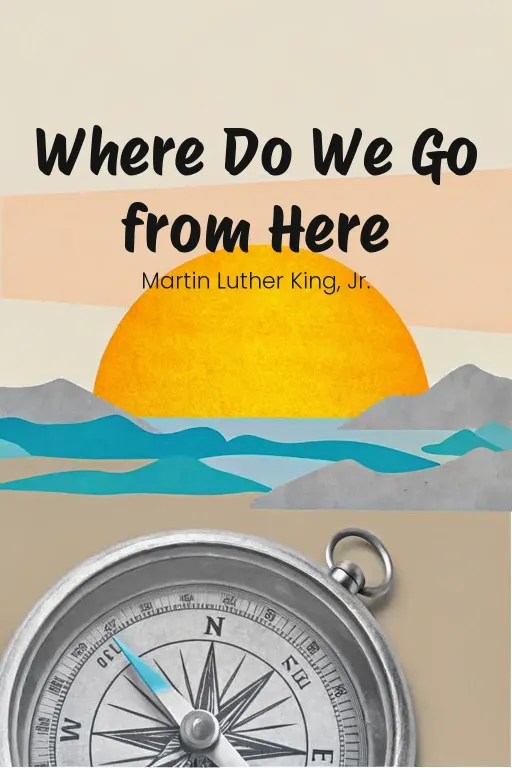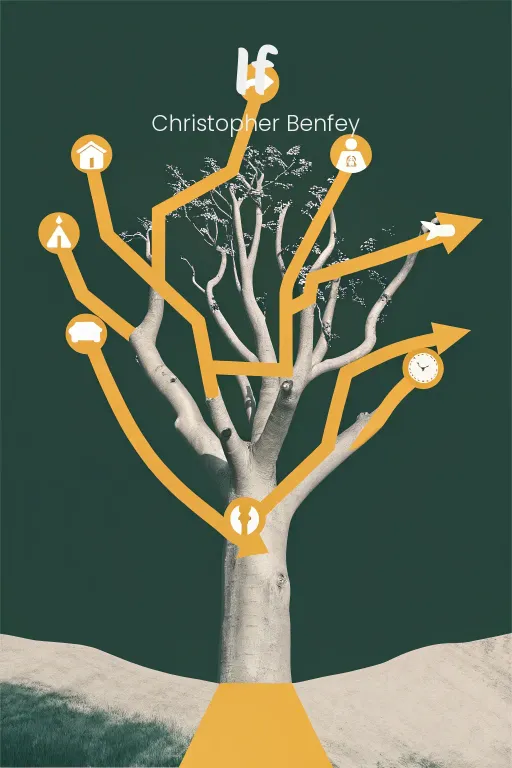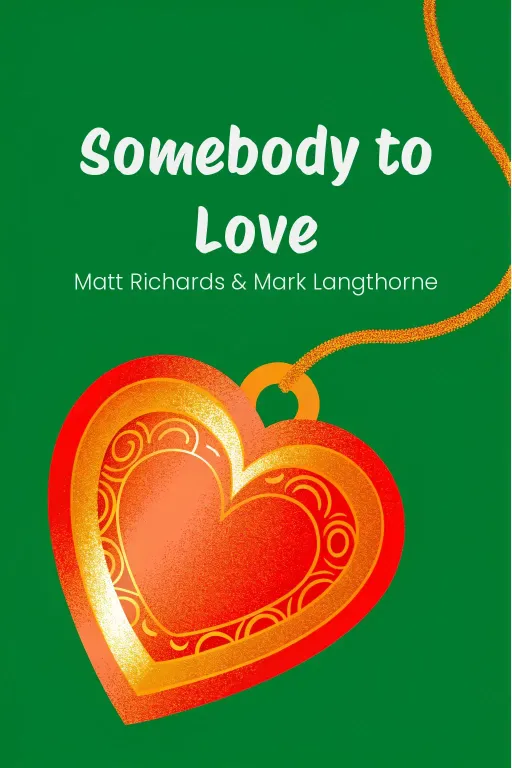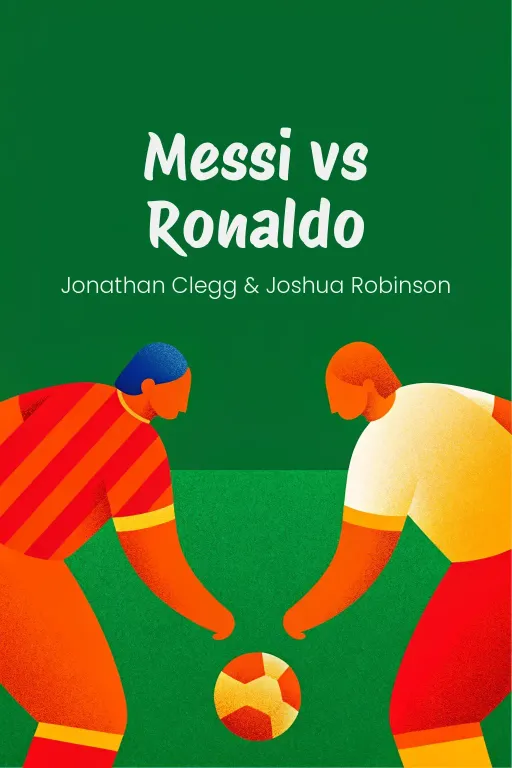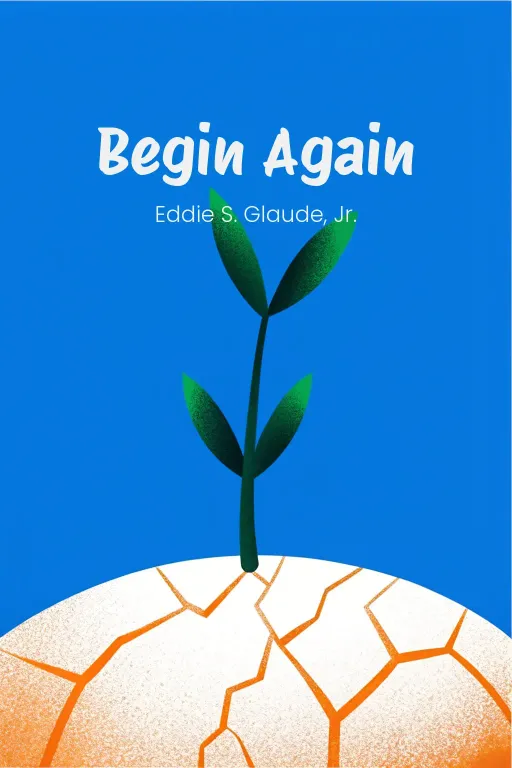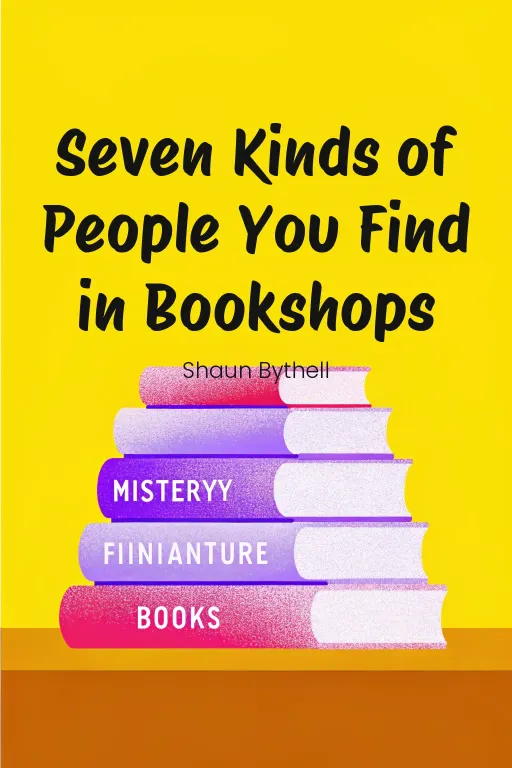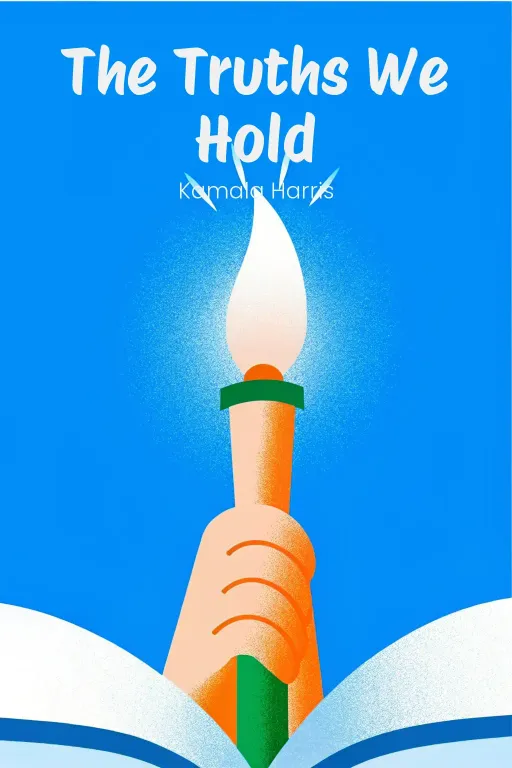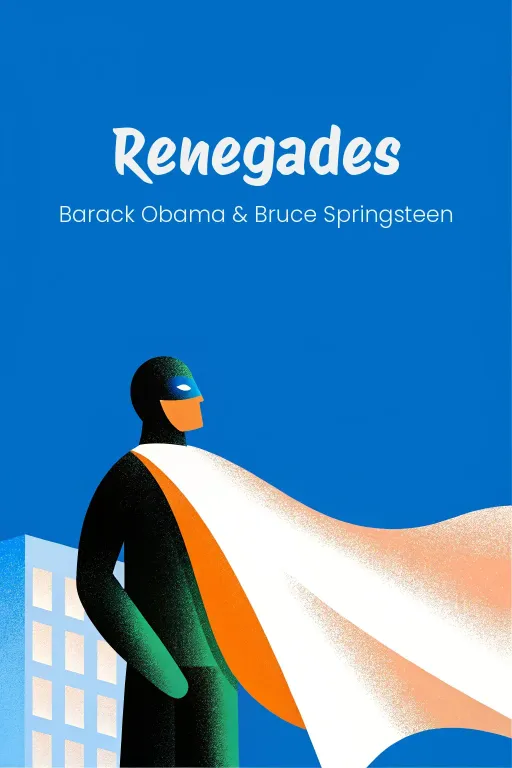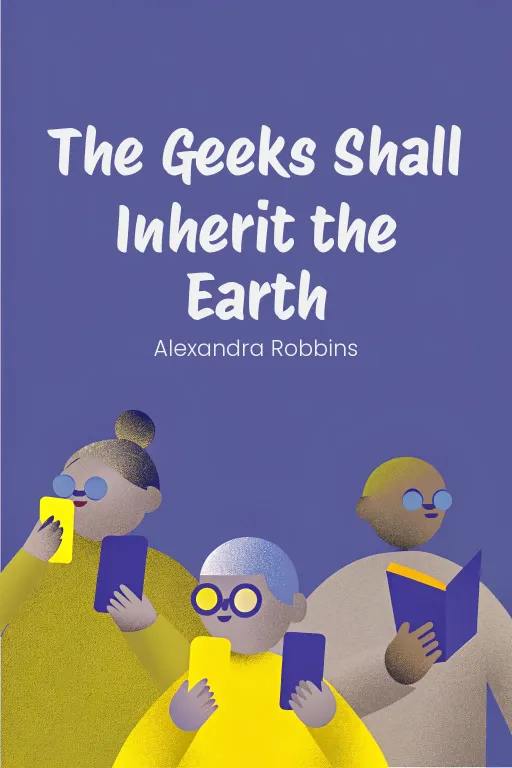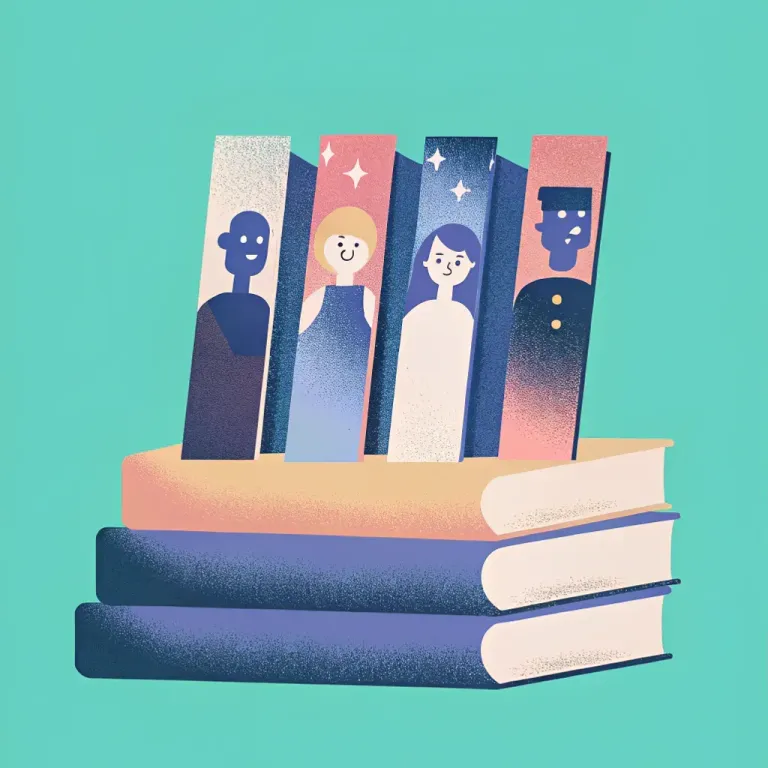
Bookstore People: A Hilarious Guide
Podcast by Civics Decoded with Thomas and Grace
Bookstore People: A Hilarious Guide
Part 1
Thomas: Hey everyone, welcome back to the show! Today, we're heading into a place near and dear to my heart, and I think maybe yours too: the wonderful world of bookshops. It's chaotic, it's fascinating, and it's definitely filled with characters. Grace: Oh, absolutely. Let’s be real, some of those people you see browsing… they’re practically characters from books themselves! But seriously, today we’re talking about breaking down these, shall we say, “unique” personalities you find lurking amongst the stacks. Thomas: Exactly! We're diving into Shaun Bythell's Seven Kinds of People You Find in Bookshops. Bythell, a Scottish bookseller, paints this witty, nostalgic picture of his daily encounters. He’s basically giving us these archetypes of bookshop regulars. Think of it as, like, a field guide to humanity, you know, with a big dose of humor and a little bit of satire thrown in. Grace: Humor? Definitely! This guy doesn’t pull any punches. But honestly, it's not just about jokes. Bythell reflects on the larger role bookshops play. How they connect us not just to stories, but to each other. And even to, well, the oddities within ourselves. Thomas: Precisely. So, today, our journey through the bookstore "jungle" will have four main stops. First, we’ll meet some of these hilariously vivid customer types – from the self-proclaimed expert to that one occult enthusiast, you know the type. Second, we'll look at the sense of community that a bookshop creates, and how humans connect in those spaces. Grace: Okay, and third, we'll discuss how bookshops are actually surviving in this age of algorithms and drone deliveries, right? Thomas: Absolutely! And lastly, we’ll reflect on what all of this means about our relationship with books. Why are people still drawn to, you know, these special places, with all the distractions we have today? Grace: So whether you're into, I don’t know, stamp collecting, or chasing ghosts, or just killing time with a latte, this episode is probably for you. Let's dive in, shall we?
Customer Archetypes in Bookshops
Part 2
Thomas: Okay, so let's jump right into Bythell's customer archetypes, which are actually really insightful. I mean, it's not just a funny list; it’s a way to understand people through the kind of behavior you only really see in a bookshop. He's basically distilled years of customer observation into these distinct characters. You can almost picture them browsing in your local bookstore, can't you? Grace: Exactly! Maybe even whispering, "Got anything on, uh, Siberian tree snails?" So, let's start with my personal favorite...or least favorite, depending on the day: the Peritus, a.k.a. "The Expert." These are the people who are overflowing with information, whether you want it or not. Thomas, break them down for us. Thomas: Right. So, Bythell divides the Peritus into two types: the doctus – your specialist – and the hominem odiosis, the Bore. First, the doctus. These are the people who know a ton about some niche – like, the Napoleonic Wars, or obscure moss species. He mentions a customer who cornered him and gave this long, unprompted speech on the reproductive habits of Siberian tree snails. Seriously, who even knows that?! Grace: I know, right? Imagine being stuck behind the counter while someone goes on and on about that. You're just nodding, but inside you're screaming, "Why me?!" But, in fairness, is Bythell kind of poking fun at people just for being passionate? I mean, it's odd, but at least they care about something deeply, wouldn't you say? Thomas: That's a great point, and Bythell actually addresses that. He says the doctus isn't trying to be annoying. They're often just lonely or insecure. Sharing knowledge is their way of connecting, not showing off. He writes about this bittersweet thing: they really want to connect, but their trivia just builds a wall. Grace: It’s like a small-town Shostakovich symphony. All this pent-up emotion translated into something so dense nobody can understand, and you're just trying to figure out how to politely end the conversation. Which I guess leads us to the Bore, the other side of the Peritus coin, or as I call them "the living audiobook nobody asked for." Thomas: Perfect! The Bore's issue isn't what they know, but how they share it, if you can call it that. Bythell tells this funny, painful story about a guy named Alfred who turned a contactless payment into a rant about the evils of technology. By the end, the whole line had aged, like, five years. Grace: Oh, that Alfred. Classic. You know, what's interesting is that Bythell doesn't just dismiss them, like he does recognize something else in them. Like the doctus, the Bore wants to be heard, but they don't know when people have tuned out. It's kind of sad, really—they’re shouting into their own echo chamber, hoping someone will actually listen. Thomas: Exactly! And that's why Bythell's descriptions resonate—he doesn't just stop at the surface. He sees the frustration, but he also sees what these habits say about connection, or the lack of it. It's like he's pointing out that bookshops have become refuges, even if people don't always know how to connect. Grace: Right, like theaters of human interaction. So, speaking of human messiness—which bookshops seem to amplify—what about the Familia Juvenis, the young family? Now, Thomas, I'm trying not to stereotype, but as someone who goes to bookstores, I see chaos coming when I see a stroller. Does Bythell confirm that, or is there more to it than that? Thomas: Definitely more. The Familia Juvenis it's about the balance of chaos and love that young families bring to a bookshop. And I especially felt for one specific type: parantes lassi, the exhausted parents. Bythell makes them sound like warriors, entering the shop as a temporary escape from parenting. Grace: Escape? Depends on the kids, right? Thomas: True, but the kids, or filii librorum cupidi, the book-loving kids, can be wildcards. There's a story about a rainy day in Scotland: a family goes to Bythell's shop to get warm. The kids run to the storytelling corner, start messing with the books, giggling, while the parents just slump in the chairs by the fire, totally drained. It's annoying, but also kind of sweet, that mix of energy and exhaustion. Grace: Yeah, that sounds familiar. I guess it's relatable not just because of the chaos, but what's underneath it. Bythell doesn’t just get annoyed by the mess, right? Thomas: Not really. He gets frustrated, sure, But he is empathetic. He sees these families as part of the bookshop's life force. They bring energy, and they remind him that there's hope, even among the mess. These parents want their kids to love reading, even if it's noisy. And under it all, they have this deep love and hope for their kids. Grace: That's a good reminder: bookshops aren’t just quiet places, they're living spaces. Where chaos and dreams can coexist. So, speaking of dreams, should we get into the more mystical side of Bythell’s types? I'm talking about the Occultists, or as he calls them, Homo qui meleficus amat. What do you think about that one, Thomas?
The Role of Bookshops as Community Hubs
Part 3
Thomas: You know, the “Occultists” are just endlessly fascinating to me. They're the customers who come into a bookstore searching for something, well, literally out of this world. There’s this almost eccentric energy that Bythell captures so well; you can practically see them drifting among the shelves in long cloaks. They're not just browsing, they're on a quest for meaning – tarot decks, alchemical texts, ancient grimoires. And they genuinely believe these books have some kind of spiritual resonance. Grace: Spiritual resonance, huh? Or just some clever marketing for a new age handbook? I mean, Bythell seems a bit skeptical of their beliefs, but it also seems like he enjoys watching them anyway. Thomas: That's absolutely right. Skeptical, definitely, but judgmental? Not really. There's this story about a customer in tie-dye who insisted a book on crystal healing was "calling to them." On the surface, it sounds ridiculous—and Bythell definitely finds it funny—but he treats these people with respect. He sees them as sincerely seeking something beyond logic, especially in our increasingly rational, disconnected world. Grace: There’s something kind of charming about that, isn’t there? I mean, okay, so it's easy to laugh at someone who thinks a book "speaks" to them. But come on, haven't we all felt drawn to a particular story or text? Maybe their theatrics make it memorable, but at least they’re believing in something bigger. Thomas: Exactly! And that makes Bythell’s bookshop almost like a sacred space for them. It’s not just a place to buy books but a place where magic, or the search for it, feels real. Think about the venator umbrorum, the ghost hunters, who are always looking for books on spectrology. It might seem far-fetched, but what drives them—curiosity, hope—those are deeply human things. Grace: But it's not all show, is it? Bythell seems to see a genuine connection between these occultists and the books they buy. Actually, isn't buying a book itself a bit of a ritual? You go in, browse forever, consider your choices, and then finally, you choose one to take home. Thomas: Beautifully said, Grace. I think Bythell would agree. What’s interesting is how these encounters, even the weird ones, show how inclusive bookshops can be. They’re places where even people with very specific or unusual interests feel seen and accepted. I mean, someone could be looking for instructions on astral projection, but to the bookseller, they're just part of what makes the shop vibrant. Grace: Which raises a tricky question: would bookshops still be this inclusive if they were purely about profit? You know, how do they keep stocking obscure books that don't sell that well? Thomas: That's definitely something Bythell thinks about. He knows there's a balance between running a business and being a welcoming space for everyone. But he also thinks that tension is what keeps bookshops relevant. They're rare places where all kinds of customers are welcome, from occultists to young families to the Homo qui libros antiquos colligit, the antiquarian book collectors. Grace: Ah, the collectors! Let's move from the mystical to the historical, shall we? These guys are a whole different breed. They don't just see words on a page, they see artifacts, with all the importance and history that comes with it. Thomas: Absolutely. And it’s almost romantic, isn’t it? They see books as time capsules that give you a tangible connection to the past. Bythell describes them like hunters, sometimes a bit obsessive, like the guy looking for the Kilmarnock Edition of Robert Burns’s poems. It wasn’t just about having a rare book, it was about preserving a piece of cultural history. Grace: Right, but collectors can be tough on booksellers, too. They can be super demanding, obsessed with every little detail, and they'll haggle fiercely. And if they find a better deal online, they'll just walk away. There's a ruthless side to their passion. Thomas: True, but Bythell also appreciates their respect for the physicality of books. In a world of e-books, they remind us how valuable tangible, historical objects are. Their obsession isn’t just selfish; it’s about preserving a shared history for the future. Grace: That's a good point. And it’s interesting how bookshops are in the middle of all this, catering to everyone from kids who don't know how to handle a book to collectors who treat every crease like a crime against history. Thomas: Exactly. It's that space, which holds such a wide range of people and purposes, that makes bookshops real community hubs. They're not just stores; they’re spaces where everyone contributes to the atmosphere of the place. Grace: And maybe that's why bookshops are still surviving, against the odds. Sure, they're up against giant corporations and online stores, but they offer something the digital world can't – a sense of connection, of belonging, and a shared humanity.
Challenges and Resilience of Independent Bookshops
Part 4
Thomas: So, recognizing bookstores as community hubs, we've gotta talk about the modern challenges. And this brings us to a major theme in Bythell’s book: how independent bookstores are staying resilient despite huge pressures, especially from the digital world. What “really” struck me, Grace, is that he doesn't sugarcoat the difficulties, but he's still optimistic about their future. Grace: Yeah, because honestly, optimism might be all they've got! Competing with Amazon feels like... bringing a butter knife to a gun fight. What I found interesting was Bythell focusing on the intangible qualities of bookstores. To make it real for listeners, what pressures are we even talking about here? Thomas: Well, first, there’s the giant in the room: online retail, especially Amazon. Bythell nails the frustration of trying to match their convenience, speed, and low prices. Customers come in asking for obscure books, but then balk at the price after he finds them. They’re used to free shipping and discounts that small bookstores can’t offer. Grace: And the irony, of course, is these are the same people who gush about how much they love independent bookstores. Just for browsing, I'm guessing. Thomas: Exactly! There’s a disconnect between what people say they value – supporting local businesses, the joy of in-person shopping – and where they actually spend their money. It's this contradiction that Bythell skewers with his dry humor, but there's a deeper point: it's not just books being lost, it’s the human connection, those slow, meaningful conversations that happen in these places. Grace: So, bookstores like Bythell’s are competing on price, convenience, and this almost unquantifiable "authentic connection." It’s a David vs. Goliath situation. What are they offering in return, what's drawing people back? Thomas: Nostalgia, definitely. Bythell says bookstores thrive because they offer something algorithms can’t: the sensory experience of browsing. The smell of paper, stumbling on a hidden gem, even the creak of the floor - digital can’t duplicate that. And it's not just aesthetics. Nostalgia ties into memories, people's first experiences with books. Grace: Which explains the older, loyal customers Bythell writes about. Bookstores aren't just shops for them; they're sanctuaries, reminding them of a pre-digital world where discovery wasn’t guided by algorithms, but by serendipity. Did you catch that story about the customer searching for Patricia Wentworth's Lonesome Road? Thomas: Oh, I loved that story! She wasn't just looking for a book; she was chasing a memory. Bythell vividly describes her emotional reaction upon finding it, then he drops this funny tidbit about why the book became controversial in the first place, with its cover depicting chocolates and a syringe! It perfectly shows what independent bookstores do: they connect a person not just to a book, but to its context, history, and emotional resonance. Grace: Nostalgia as a superpower… but we need to address the elephant in the room. Nostalgia sells, sure, but is it enough? Are independent bookstores relying too much on sentimental charm when, “really,” online shopping just makes more sense for most people? Thomas: That's where supportive customers come in. Bythell emphasizes how vital their support is, not just saying it, but actually buying books. He mentions a regular who admitted to buying books online for the discounts. That kills the business! Bookstores literally can’t survive without the financial investment of customers who believe in them. Grace: Right, but the reverse is true too! Like that customer who tipped an extra ten pounds during the pandemic just to show their support. That act becomes a symbol of what keeps bookstores alive: a community. The bookstore gives you something irreplaceable, and you go out of your way to preserve it. Thomas: Precisely. And Bythell knows these shops need to evolve to survive. He talks about maintaining an online presence, cataloging inventory, managing reviews, and shipping books during the pandemic. It’s hard work, but it was a lifeline, a way to stay connected when physical visits stopped. Grace: I like that he doesn’t paint technology as the sole villain. Sure, e-commerce presents challenges, but it also throws a rope to those who adapt. Bythell’s almost pragmatic about it—not about rejecting tech, but figuring out how to integrate it without losing the bookstore’s soul. Thomas: Exactly. And that soul comes from the human connections these shops foster. For all the difficulties he mentions – long hours, odd customers, and financial strain – there’s this thread of optimism. Bythell believes bookstores survive not because they outcompete online retail but because they offer something human: stories, and the relationships built around them. Grace: And stories are the glue. Whether it’s nostalgia, or the simple discovery of thumbing through a novel, bookstores are human spaces that Amazon can't replicate with algorithms.
The Human Connection to Literature
Part 5
Thomas: You know, the staying power of bookshops really highlights how much we, as humans, crave that connection with physical books and storytelling. What Shaun Bythell does so well in “Seven Kinds of People You Find in Bookshops” is point out that the real magic of books isn't just what's written inside, but how they bring us together. It's about building those emotional and intellectual links that go beyond just buying or reading something. So, what we're diving into today is that key theme: the deep human bond with literature. Grace: Exactly, Thomas! And that's where it gets “really” interesting, right? It's not just funny to recognize these typical characters; Bythell's book actually makes you think about why we're drawn to books in the first place. It's not just about the story itself, is it? It's like literature becomes a mirror reflecting ourselves, a bridge connecting us, and sometimes, a lifeline. Thomas: Yes, exactly. He brings this out beautifully when he explores books as anchors of identity and memory. Take the antiquarian book collectors—the Homo qui libros antiquos colligit. These aren’t just folks chasing rare books for their monetary value. They’re motivated by the stories behind the books, by the connection they feel to history. Grace: Totally. That story he tells about the collector searching for the first edition Kilmarnock printing of Robert Burns’ poetry? It’s not just book-hunting. It’s almost like a pilgrimage. The collector wasn’t just looking for a book—they were after a piece of history, a cultural artifact that ties them to something larger than themselves. It’s practically sacred. Thomas: That’s so true, Grace. And Bythell doesn’t just write it off as an obsession. He talks about how these collectors see books as little time capsules, preserving not just the story, but the actual, physical link to a moment in time. A rare book like that Kilmarnock edition can spark a shared sense of pride in Scottish literature, but it can also tap into personal memories or ideals linked to it. Grace: It almost seems like they're defying time, doesn't it? In a world obsessed with what’s new—with streaming, and scrolling, and swiping—these collectors are holding onto something you can actually touch, something that lasts. I mean, maybe there's a “little” bit of wishful thinking there, but it's beautiful, too. Thomas: Definitely. And it's not just collectors, right? This connection applies across the board. Take Discipula Maria, or Student Mary. She's not there to show off or collect. Her connection to books is all about growth—it's a tool for figuring out herself and her place in the world. Grace: Right, Mary is different from these other regulars. She’s “really” soaking everything up—not just the books but the whole atmosphere. Her connection isn’t about keeping things alive or sharing them; it’s about discovering. I was struck by how her focus on The Sound and the Fury helped her connect to other people. The way Bythell describes her helping another customer understand Faulkner’s themes of grief and resilience—it’s a classic example of what books do: reflecting shared human experiences. Have you seen similar things in real life? Thomas: And that’s what bookshops facilitate, isn’t it? They’re spaces for these shared moments to unfold, spaces where people can wander, wonder, and—most importantly—connect. Whether it’s a shy student like Mary or a customer overhearing her insights about Faulkner, both parties walk away transformed in some way. It’s the kind of experience that digital shopping, for all its convenience, just can’t replicate. Grace: So bookshops as places where transformation takes physical form. But not all transformations are loud or obvious, right? Some are quieter, like the ones we see in the Occultists. These are people chasing meaning through literature, often in the most unconventional ways. Have you ever tried to find your spiritual enlightenment through books? Thomas: That’s where Bythell’s story about the tie-dye-clad crystal enthusiast comes to mind. Sure, it’s easy to laugh at the idea of a book “calling out” to someone, but there’s something profoundly human about it too. This person wasn’t just buying a book—they were buying into a belief, a way to make sense of something beyond the ordinary. Grace: And honestly, I respect that. It’s a little "out there", sure, but all of us find our anchors when life gets too chaotic. Literature, in this case, becomes their personalized gateway. They’re drawn to the mystical, the esoteric—maybe they’re not hunting for Burns’ poetry, but they carry the same hunger for connection and meaning. Thomas: Exactly! And Bythell’s recognition of this, even if it’s tinged with skepticism, underscores the inclusivity of bookshops. It’s where everyone’s search, no matter how niche or quirky, feels valid. The ghost hunters scouring shelves for spectrology books, the astrology buffs flipping through tarot guides—even if their paths seem unconventional, these literary quests represent a broader human desire to connect with something larger than themselves. Grace: It’s fascinating, isn’t it? Whether it’s through well-loved literary classics or guides to raising one’s spiritual vibrations, people turn to books for grounding in an otherwise uncertain world. Which also reminds me—kids have one of the purest connections to literary spaces of all. Enter the Familia Juvenis. Thomas: Oh, yes! Bythell’s depiction of children naturally ties us to the emotional aspect of literature. Unlike historians or occultists, kids don’t approach books with an agenda. They’re drawn to their immediate worlds—imagination, adventure, fun. Bythell’s anecdote about the little girl engrossed in The Wind in the Willows stands out. Her joy wasn’t just in reading—it was in engaging every sense with the book, from the illustrations to the tactile act of turning the pages. Grace: And that joy is contagious, isn’t it? Even the most world-weary bookseller, in moments like that, probably feels a spark of hope. But the flip side of this is Bythell’s frustration with some parents, right? The ones who dismiss bookshops as dead weight or leave their kids unsupervised. How do we pass the love of reading to our next generation? Thomas: True, but Bythell often walks us back to the heart of the matter. Even when parents appear disconnected, the simple act of bringing their children into a bookstore shows an intent—however subconscious—to foster reading as a priority. And kids, for their part, rarely let disinterest from adults dampen their enthusiasm. They take to books instinctively and joyfully, making bookstores an arena for discovery. Grace: That sense of generational discovery, the passing down of books as both objects and vehicles for memory—it’s something Bythell weaves into many of his archetypes. It all circles back to one idea: Literature isn’t solitary. It’s a shared experience, whether between parents and children, booksellers and patrons, or collectors and their cultural histories. Thomas: Precisely, Grace. Bythell’s work is a reminder that books do more than entertain; they connect us to our past, reflect our present, and even shape our futures. Through every oddball archetype, “Seven Kinds of People You Find in Bookshops” pays tribute to a wholly human relationship—transformative, imperfect, and endlessly worth preserving.
Conclusion
Part 6
Thomas: So, Grace, after wandering through the maze that is Bythell's bookshop, with all its quirky experts, those chaotic young families, serious collectors, even those mystical occultists... it's clear He uses a bit of humor and reflection to show us that bookshops are more than just businesses, right? They are really dynamic, human spaces. They connect us to the past, but also to each other, creating this sense of meaning. Grace: Exactly! It’s not just about the funny bookstore characters, is it? Bythell uses them to really highlight this bigger point: we all crave stories, we all want to know where we came from, and we all need to feel like we belong somewhere. Even with all the pressure from the internet and everything, bookshops are still around because they speak to something fundamental in us—that desire to question things, to imagine, to connect with each other. Thomas: Right, so here’s the thing. Next time you’re browsing in your local bookstore, think about the part you play in its story. Are you there as a nostalgic collector, or are you seeking something magical, or are you just looking to escape reality for a bit? Whatever it is, remember you’re helping keep these spaces alive. Grace: And hey, maybe actually buy that book you’re holding, instead of just scanning the price on your phone, right? I’m just saying. Bookshops might not win on convenience against Amazon, but they definitely win when it comes to soul. Thomas: Couldn't have said it better, Grace. That's a soul we can all support, one book, one visit, one shared story at a time.
